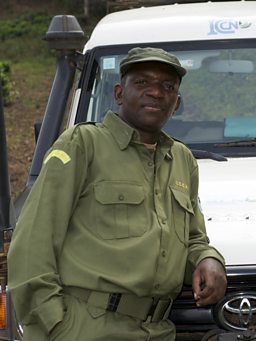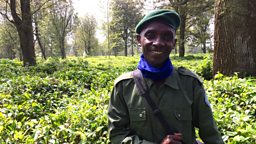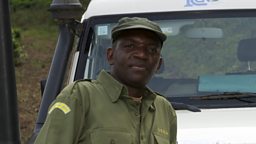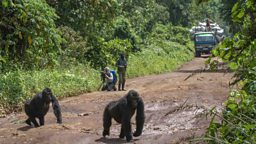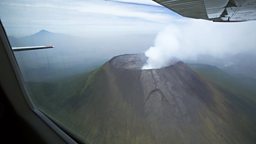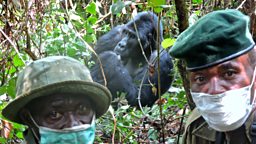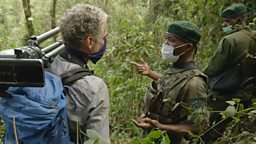A future for gorillas and guards
Park director Dr. Radar Nishuli
A fire lit up inside me one tragic day. It was 1993, and our most celebrated silverback gorilla had just been killed. I was in charge of outreach at the time, and was trying to show people how important it was to conserve nature and in particular to save gorillas. And yet the man who had done it was free, and mocking us, just a few hours after being caught for this horrendous crime.
On that day, I realised I had a mission in life – to become the defender of animal and park guards’ rightsDr. Radar Nishuli
I suddenly realised the shameful injustice with which the authorities were treating cases of park guards or gorillas killed by poachers, in comparison to other crimes. When an ordinary man is injured or killed, every authority gets up to shout about it, but when a lowly park guard or a gorilla was killed, no-one dared to speak it aloud. This is partly down to a failing justice system, and through conservation not being recognised sufficiently.
On that day, I realised I had a mission in life – to become the defender of animal and park guards’ rights. And the only way to do it was to document these cases, to denounce them, and to develop mechanisms for preventing these injustices.
Today, having worked for three decades in Kahuzi-Biega National Park, at all levels from secretary right up to director, I have developed a number of initiatives together with my colleagues. The most important of these are the external education programme, as well as our pioneering involvement of local communities in the governance of KBNP, a system which is now in operation in every protected area in the country.
But what does it mean to have medals and prizes for conservation work? If it’s not possible to leave one’s best achievements as a guide to those who come after, then it is meaningless. For this reason, I have written a slogan, which I repeat to myself frequently: “A success without a successor is a failure”.
To set this in stone, I am preparing for others to take over after me. In my country, it is usually otherwise – leaders like to think that they are the only ones who can and should have the right to rule. Often, people say that we are protecting for our future generations, yet we fail to prepare them. It’s a contradiction.
Often, people say that we are protecting for our future generations, yet we fail to prepare them. It’s a contradiction.Dr. Radar Nishuli
My goal is to reverse this, by developing tools and management documents which will serve as a basis for younger conservation professionals who will come after me. The management plan which I developed when I took over as director in 2008 was the first such plan to be approved and mandated by the Congolese central government and the ICCN (Congolese Institute for the Conservation of Nature). Together with my team, I have conceived other strategies which will make this possible, including plans of action for tourism, epidemic monitoring, community conservation, security, park boundaries and scientific research.
I have started a book. Why? To prevent both the highs and lows of my career from vanishing, and in order to share my experience with young conservationists from elsewhere. It is called “Thirty Years in Nature Conservation: mission difficult but not impossible”. I am writing not just about experiences I have had or the causes of these experiences, and the way in which I have worked to keep good situations alive, to help with conservation. It’s also about how I have worked to transform bad situations into positive ones, sometimes with enormous risks.
My main concern since I began working in the park remains improving the status of the profession of eco-warden, both during and after these people’s working lives. This form of advocacy is and will continue to be my work in this region, with the support of the ICCN and of RAPAC (Central African Protected Areas Network).
I would like to say Bravo to the �鶹������ҳ���, which has understood that gorillas urgently need their own historian. And I would like to call on media around the world to mobilise in educating people against poaching of our wild species, which are in danger of extinction.
The world - for whom we are working to save our natural domains and special animals such as gorillas - must not only protect nature. It has a duty to protect the protectors – the conservationist, and park guard.
